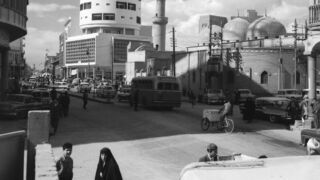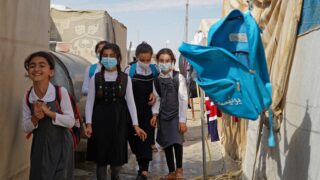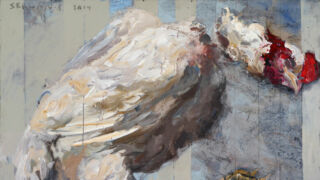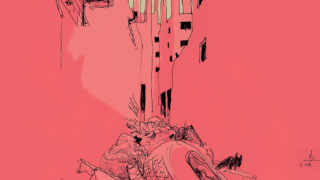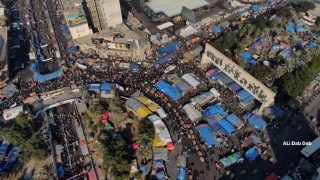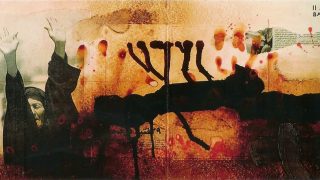An absurd synopsis of Iraq’s dissolution under American occupation: the figure of the modern, educated doctor, forced to pay the blood-price by tribal elders for a patient who has died. A scene that is now repeated endlessly all over the country, says Al Safir Al Arabi‘s Omar Al Jaffal.
In the space of 24 hours last July, three doctors were murdered in different parts of Baghdad, all of them shot with silenced pistols. Physicians took fright; some closed their clinics for days. But the practitioners of this fine profession fear more than murder. The tribalism that has taken root in Iraq casts its long shadow over them too. Nowadays, if a patient dies under his care during surgery, the doctor must sit in a tent with a tribal elder to bargain over the amount of “blood money” he must pay to the patient’s family.
Skilled and qualified people left Iraq in large numbers at the end of the 1970s; the regime of former Iraqi president Saddam Hussein was repressing the leftist and Islamic parties to which many doctors belonged. Then at the beginning of the Eight Years War [with Iran in the 1980s], state spending on the health sector began shrinking. And as the 1990s opened, with Saddam Hussein’s wars and the invasion of Kuwait, international economic sanctions strained all sectors of the country. Spending on the health sector was only 2.7 percent of GDP, and doctors were being paid no more than 4 dollars a month.
Fear of repression piled on top of penury and deliberate impoverishment, and the country began to hemorrhage doctors . Some resorted to deceit to get out, bribing passport authorities not to mention on their passports that they were doctors, writing other professions instead. The state was now banning doctors from traveling at all. In the two decades of Iraq’s barren years, nearly 20,000 doctors left the country, according to Health Ministry statistics.
After the occupation of Iraq in April, 2003, there was an organized campaign against Iraqi professionals, and doctors in particular. At the time, no one knew who was behind it. These repeated, targeted attacks led to a new wave of emigration, with the result that a further 60 to 70 percent of the country’s remaining doctors left after 2003, out of a total of 34,000 who had been registered with the Iraqi Doctors’ Union. This was on top of the numerous trained medical staff who also left the country, according to Ministry of Health reports published at the beginning of last year. The British organization Medact says that few of those who were forced out of the country plan to ever return.
In 2011, there were 7.8 doctors for every 10,000 people in Iraq. This is half or a quarter of the number in neighboring countries like Lebanon, Jordan or Syria, according to figures from the World health Organization.
Twelve of the country’s large hospitals, with 400-bed capacities, suffer from a severe shortage of medical staff. Many Iraqi doctors now work in Britain, one of numerous countries that have drawn in Iraq’s scientific talents. The Ministry of Immigration says that there are now 5,000 Iraqi doctors there, as well as 1,500 in the UAE and Qatar.
Those doctors who have chosen to remain in Iraq have had neither concern nor protection from the occupation government or the subsequent local government. They were instead abandoned to be preyed upon by the tribal values and customs that have come to dominate the country since Saddam Hussein fell and state institutions collapsed.
On May 29, 2012, the doctors at Qudusiyya Hospital in eastern Baghdad’s Sadr City district went on strike after a tribal threat to senior doctors at the hospital when a patient died during surgery. The doctors returned to work after the Ministry of Health signed a ‘peaceful coexistence’ document with tribal leaders in Sadr City. To try keep the situation from spreading, the Ministry of Health signed a June 2012 cooperation covenant with all of the tribes of the country, which included a provision stating that ‘no tribe shall have the right to pronounce a doctor negligent in his treatment of patients. If there is an allegation that a doctor has been negligent, the office of the Inspector General shall be notified, and an investigation committee shall be set up in accordance with the Public Officials Disciplinary Law.” In practice, the covenant soon turned out to be meaningless; for example, doctors in Basra hospitals have been subjected to repeated attacks and tribal retributions, particularly those who work in the city’s emergency rooms. They have demanded protection from local government, according to a August announcement by the director of the city’s Shifa Hospital.
Diyala province recorded nine cases of tribal ‘settlements’ or ‘blood money’ exacted from doctors in October, 2013. In some cases, as much as 50 million dinars [$40,000] were paid out. It also recorded the death or injury of 450 medical staff in acts of violence. Hundreds of doctors there were reported to have fled to the Kurdistan region and to other governorates.
Once the situation doctors faced in Iraq got out of hand, and their mass emigration became a reality, the Iraqi parliament decided last July to step in and introduce a law to protect them. It has however been delayed several times, due to disagreements between political party blocs. It includes a sentence of no less than six years and a fine of at least 10 million dinars for anyone who makes a tribal or illegal claim against a doctor for his medical work. Furthermore, anyone who attacks a doctor over the performance of his work is to be punished with the same penalties as someone who attacks a public official in the performance of his duties. Laws like this will in any case not be effective if the politicians themselves keep resorting to reinforcing the power of the tribes before each election. It is after all they who give them the guns that are then waved in the faces of the doctors.
The main problem facing the government is trying to convince doctors to stay in the country, or to return if they have already left. But they can only offer them the usual guarantees: a lower salary than the one they would earn abroad; a pension that cannot equal the years that they have worked; their fate abandoned to the benevolence of the killers who unrestricted roam the streets; and finally this vindictive spirit that drags a doctor in his fine suit and shiny stethoscope to the tent of a tribal elder; there to pay blood money to atone for his medical efforts if he does not want to find himself laid out in a morgue next to the law that was supposed to have protected him.
A disaster that is shorthand for the greater historical catastrophe of a country stripped of its history; a disaster for any citizen who falls ill and a disaster for the doctor who tries to cure him, in a country suffering from illnesses that have become resistant to cure for the foreseeable future.
Translated from Arabic by International Boulevard

